With the highly anticipated arrival of the Samsung Galaxy S24, it’s time to determine if this latest flagship device should be your next smartphone. While the base model S24 may not feature some of the significant hardware updates seen in recent versions, there are compelling features beneath the surface that make it an intriguing option for those in the market for a new smartphone.
Preorders for the Samsung Galaxy S24 have already begun, with Samsung offering its entry-level flagship starting at $799. The phone is set to be available in retail stores starting January 31, providing a brief window for potential buyers to consider their purchase. However, if you’re eager to capitalize on preorder promotions, Samsung is offering the option to upgrade storage at no additional cost and potential savings of up to $550 through a trade-in.
Allow us to assist you in evaluating the advantages and drawbacks of the Galaxy S24. As an integral part of our comprehensive review and testing procedures, we’ve had the opportunity for a hands-on experience with the Samsung Galaxy S24 to gain insights into its new features. Although a final judgment awaits the completion of testing, we’ve formed initial impressions on why the Galaxy S24 could be a worthwhile investment—and also why you might consider exploring other options for your next phone.
Samsung Galaxy S24 Preorders Starting from $249 with Trade-in @ Samsung
Receive a complimentary $25 credit! Samsung is providing discounts of up to $550 on the Samsung Galaxy S24 with a trade-in. Additionally, enjoy a free storage upgrade and a $25 Samsung credit. The phone boasts a 6.2-inch AMOLED 120Hz display, Snapdragon 8 Gen 3 chipset, 8GB of RAM, and 128GB of storage. On the camera side, you can expect a 50MP main lens, a 12MP ultrawide lens, and a 10MP telephoto lens (3x optical zoom) on the rear, along with a 12MP front camera.
Samsung Galaxy S24 pros
AI Features Galore:
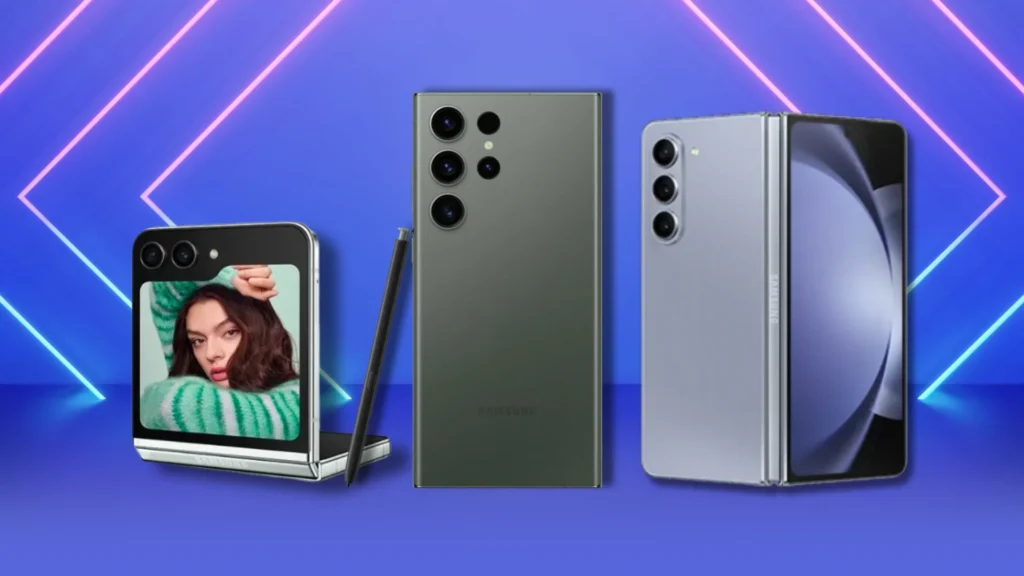
The Samsung Galaxy S24 is replete with new functionalities harnessing the power of artificial intelligence. Indeed, it’s fair to assert that the focal point of this latest round of updates revolves around the enhanced AI capabilities.
If you’ve determined that Samsung’s pricier models are beyond your budget, there’s encouraging news. Samsung has extended the same AI features to every S24 variant, ensuring that the Samsung Galaxy S24 can deliver equivalent capabilities to both the Samsung Galaxy S24 Plus and Galaxy S24 Ultra.
These capabilities have proven to be quite practical, involving everyday tasks that align with the typical usage of your phone. For instance, Circle to Search simplifies web searches by allowing you to circle an object within any app you’re using. Chat Assist offers suggestions for various tones and wording in text messages based on the recipient. Moreover, Live Translate can deliver real-time translations of phone conversations, all processed directly on your phone.
Larger, more vibrant screen:
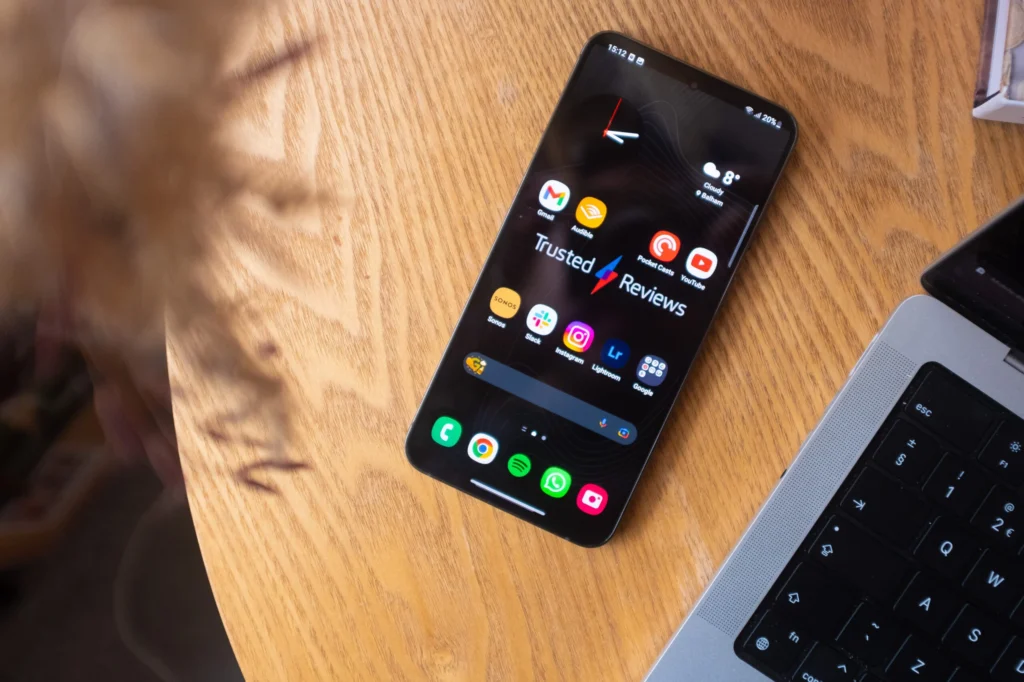
Acquire a Galaxy S24, and you’ll enjoy an expanded-screen real estate. Samsung has reduced the bezels on its latest phones, resulting in the Samsung Galaxy S24 now featuring a 6.2-inch display, a slight increase from the 6.1-inch screen found on last year’s Galaxy S23.
The additional screen space on the Samsung Galaxy S24 is achieved by reducing bezel size rather than adding bulk. Consequently, the dimensions of the Samsung Galaxy S24 remain unchanged compared to its predecessor, measuring 5.79 x 2.78 x 0.3 inches. This ensures that you don’t compromise the compact form factor, which is undeniably one of the standout features of Samsung’s entry-level flagship.
The Samsung Galaxy S24 doesn’t just sport a larger display — it’s also brighter. Remarkably, Samsung maintains a consistent brightness rating across the entire Samsung Galaxy S24 lineup, ensuring that the maximum brightness of 2,600 nits on the Samsung Galaxy S24 matches that of the Samsung Galaxy S24 Ultra. This parity signifies that your phone’s display remains visible even in challenging lighting conditions, as confirmed during our demo time with the device.
A few years ago, Samsung’s commitment to providing four years of software updates, coupled with five years of security support, was considered quite generous. This support policy was one of the most extensive in the realm of Android devices, approaching the levels of software and security support typically associated with Apple.
Google surpassed the four-year support commitment with the Pixel 8 release last fall by extending support to seven years. In response, Samsung has decided to align with this extended support trend. The Samsung Galaxy S24 now provides seven years of software and security support, ensuring that if you choose this phone, you can keep it for an extended period, at least until 2031 or beyond, whichever comes first.
Surprisingly Improved Cameras:
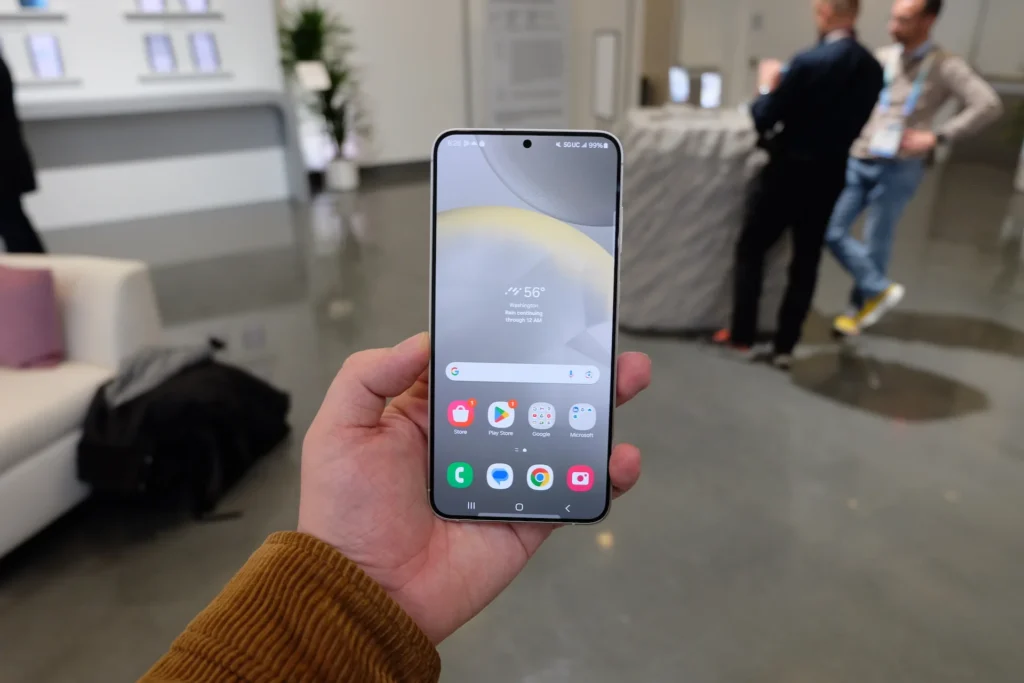
On a superficial level, there’s no distinction in the camera setup between the Samsung Galaxy S24 and the Samsung Galaxy S23, be it the 50MP primary shooter or the 12MP ultrawide and 10MP telephoto lenses. The sensor sizes and apertures also remain consistent.
However, Samsung contends that this perspective disregards the significance of the Pro Visual Engine, a set of tools leveraging AI—yes, that term again—to achieve photo capabilities beyond those of previous Galaxy camera phones. The Pro Visual Engine enables enhanced night zooming, delivering sharp and clear images with minimal noise. Additionally, this feature enhances segmentation for portrait shots, ensuring the subject of the photo truly stands out.
While this might not be sufficient to compel current Galaxy S23 owners to immediately upgrade, if your smartphone is at least a couple of years old, choosing the Samsung Galaxy S24 over the Galaxy S23 (which is still available at a discounted price, as we’ll delve into later) will bring noticeable improvements.
Upgraded Snapdragon Performance:
The Snapdragon 8 Gen 3 system-on-chip was introduced last fall, and with each subsequent leaked benchmark, our anticipation has grown to witness the capabilities of Samsung Galaxy S24 models powered by Qualcomm’s latest silicon.
Recall that the Snapdragon 8 Gen 2, which drove last year’s Galaxy S phones and several other high-end Android devices, demonstrated notable advancements compared to Apple’s A-series chips for mobile devices. Although Apple’s chips maintained a speed advantage, the Snapdragon 8 Gen 2 outperformed certain iPhones in graphics testing. We are keen to observe whether this trend persists or even intensifies with the introduction of the Snapdragon 8 Gen 3.
And if you happen to be outside the United States? Well, continue reading, my friend.
This holds significance for U.S. consumers as the Snapdragon 8 Gen 3 drives all three models of the Galaxy S24, including the base version of the phone. This likely translates to top-tier Android performance for a device that comes at a considerably lower cost compared to other handsets powered by the Snapdragon 8 Gen 3.
An Enhanced Battery Capacity:
The Samsung Galaxy S24 features an upgraded 4,000 mAh battery, a modest increase from the 3,900 mAh power pack utilized in the Galaxy S23. Taking into account the Snapdragon 8 Gen 3—Qualcomm’s new silicon known for its improved power efficiency compared to its predecessor—one would anticipate that the Samsung Galaxy S24 will offer extended battery life compared to the previous year’s model.
This would be welcome news. The Galaxy S23 exhibited above-average performance in our battery test, where phones browse the web over cellular until their battery is depleted. However, it fell noticeably behind the performance of other models in the Galaxy S23 lineup. Some of this discrepancy can be attributed to size, as the Galaxy S23 is the smallest among the Galaxy S phones, limiting the battery capacity. Nevertheless, the larger power pack and more efficient chipset in the Samsung Galaxy S24 should contribute positively to its efforts to enhance battery performance.
Maintaining the Previous Price Point:
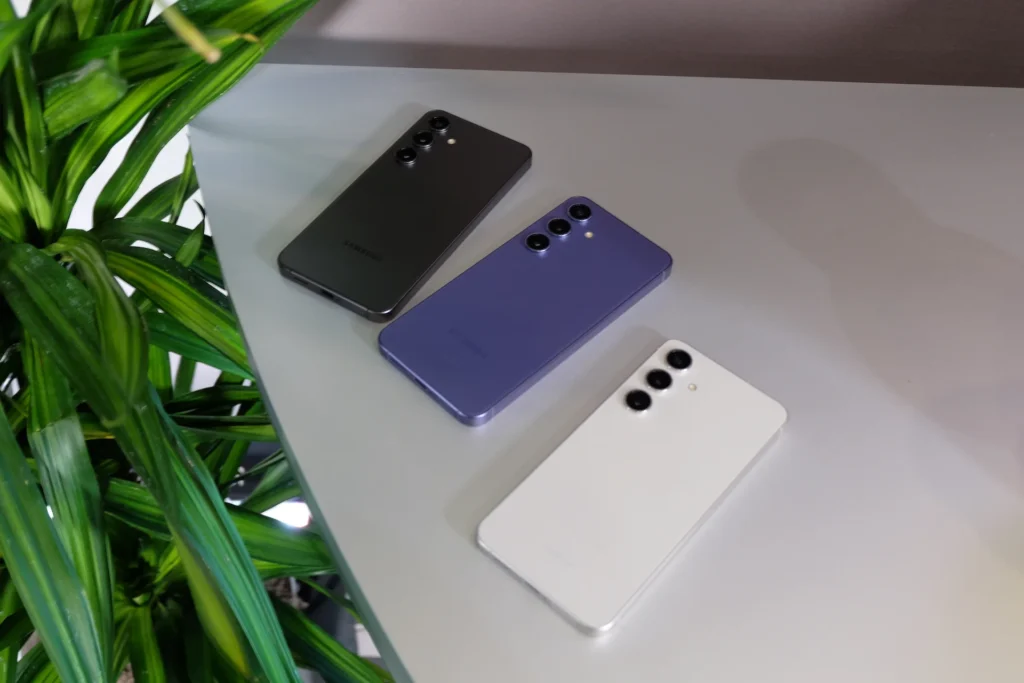
While prices across the board are on the rise—evident in the Samsung Galaxy S24 Ultra, which now commands a $100 increase compared to its predecessor—similar trends have been observed with recent releases such as the iPhone 15 Pro Max and both Pixel 8 devices, all experiencing price hikes in the past few months.
The Samsung Galaxy S24 has managed to escape such a fate, with an initial price of $799, mirroring its predecessor, the Samsung Galaxy S23. Given that this is among the few phones in this price range to feature a dedicated telephoto lens (the forthcoming OnePlus 12 may be another, depending on OnePlus’s pricing strategy), it positions the Samsung Galaxy S24 as an exceptionally attractive deal. This is before factoring in the added benefits of new features such as the brighter display, integrated AI capabilities, and more.
Samsung Galaxy S24 Cons
Not All Models Feature Snapdragon:
It’s worth noting that not every Samsung Galaxy S24 model is equipped with the Snapdragon 8 Gen 3, as mentioned earlier. For Samsung Galaxy S24 and Samsung Galaxy S24 Plus models destined for regions outside North America, an Exynos 2400 takes charge.
The adequacy of the Exynos 2400 remains uncertain at this point — benchmark tests will provide insights into how the chip compares to models powered by the Snapdragon 8 Gen 3. However, historical performance does not favor the Exynos 2400, as previous Exynos chips have often struggled to match the performance of equivalent silicon from Qualcomm, at least in testing.
Given that the Galaxy S23 didn’t differentiate its chipsets by region—utilizing the Snapdragon 8 Gen 2 across all S23 models—we wouldn’t fault individuals in other global regions for choosing the Galaxy S23 with its high-performing chipset, especially since it’s a familiar and proven choice by now. This remains a viable option because…
The Galaxy S23 is still available:
Samsung is following the same approach as last year, retaining the entry-level version of the previous flagship generation in its product lineup at a discounted price. For the Galaxy S23, you can acquire this model for $699, enjoying a $100 discount from its initial debut price in 2023.
Despite being a year older and lacking the AI capabilities integrated into the Galaxy S24, the Galaxy S23 remains a top-tier phone—one of the best-reviewed in the past year. As mentioned earlier, it boasts a Snapdragon 8 Gen 2 chipset, ensuring excellent performance and impressive battery life. Furthermore, there’s a possibility that even the AI features might not be absent for an extended period, as Samsung has hinted that some of these capabilities may eventually make their way to older phones like the S23.
Compromising on storage and RAM:
The base model of the Samsung Galaxy S24 is equipped with 8GB of RAM and 128GB of storage, representing fairly standard specifications for a flagship device. In comparison, the Samsung Galaxy S24 Plus offers 12GB of RAM and starts with 256GB of storage. Additionally, it boasts faster charging. Is the $200 premium for the S24 Plus justified based on these fundamental specifications alone? Perhaps, or perhaps not. Nevertheless, it underscores the fact that the Samsung Galaxy S24’s lower starting price does entail some trade-offs.
Paying Extra Just to Utilize Your Phone:
My initial response to the revelation that Samsung might eventually impose charges on users for accessing new AI features was one of disappointment. This information could have been disclosed at some point during the event, even though it may not have received the same positive attention as the Mr. Beast commercial or the appearance of Pokimane on stage. Nevertheless, it would have been an ethically sound decision.
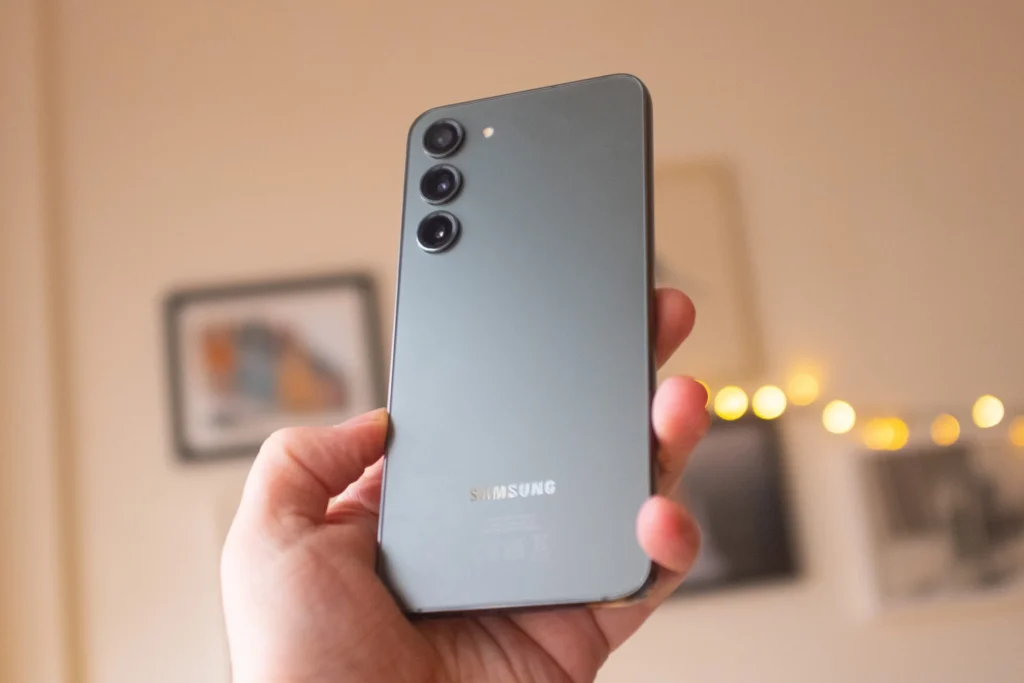
Compounding the issue is the absence of any communication regarding specifics. There is a lack of information regarding which features will be included in a subscription and whether the initiative is driven by Samsung or Google. We attempted to seek clarification from Samsung on its plans, but unfortunately, the company did not respond in time for publication.
Nonetheless, as per an anonymous source communicating with Android Central, “Current AI and assistant features will continue to be accessible without charge in countries where regulatory approval is obtained. While new features may be introduced as paid services, there are no significant plans for such changes in the immediate future.”
Interpreting that statement, there are a few possible implications. In an optimistic scenario, Samsung might simply be ensuring its readiness to introduce new features that necessitate a subscription. Conversely, there’s a concern that you could end up spending over $1,200 for the Samsung Galaxy S24 Ultra, only to later discover that additional payments are required to retain access to features that were initially complimentary.
Keep in mind that Samsung commenced Galaxy Unpacked by emphasizing that the Samsung Galaxy S24 series would receive OS and security updates for the next seven years. However, around a quarter of the way into the anticipated lifespan of the device, there is a possibility that certain features could become inaccessible. This isn’t related to hardware or software constraints but rather introduces a concern similar to the negative aspects of gaming affecting our smartphones.
The contemporary landscape is dominated by subscription-based models, making it nearly impractical to locate an app or service that provides a one-time payment option. This was not the norm previously, as you could make a single payment of $X to utilize the app indefinitely. Presently, even if you initially pay a specific amount to download an app or game, there’s typically ongoing pressure to make additional payments to “unlock” additional features.
There’s also the likelihood that Samsung is simply being cautious in case a feature is introduced in the future that necessitates payment for usage. Jerry provided an apt analogy, likening it to “cancer warnings on motor oil. NOBODY is going to drink oil, but California laws mean they want to put the warning on the bottle anyways.”
The Cost of AI:
There’s an additional facet to consider in all of this, and if you’ve been following developments in the AI field, you may have anticipated this. OpenAI has ChatGPT Plus, Microsoft has recently unveiled Copilot Pro, and there are indications that Google intends to implement charges for Bard Advanced. Additionally, there are services like Perplexity, Claude, and others that also provide subscription models for accessing more advanced features and functionalities.
Jerry encapsulated it succinctly, stating, “Samsung didn’t pioneer AI; no single company did. AI originated from the bright ideas of individuals seeking to automate mundane tasks. Subsequently, major tech companies discovered ways to enhance it while turning it into a profitable venture, shaping it into what we recognize today.”
It ultimately boils down to generating revenue, financial results, and profit margins. One effective approach for companies such as Samsung or Google to increase earnings is by placing certain features behind subscription services. If you opt not to utilize those features, that’s fine—you won’t incur any additional charges. However, if these features become integral to your use, you’re more likely to willingly pay the extra cost.
Just to clarify, I attempted to pre-order the Samsung Galaxy S24 Ultra but encountered several issues that prevented me from clicking the “Pay Now” button. Consequently, I decided to leave everything in my digital shopping cart to return when server traffic subsided. However, it remains untouched, as this frustrating experience has dissuaded me from making the effort. Perhaps I should express gratitude to Samsung for helping me save some money.


